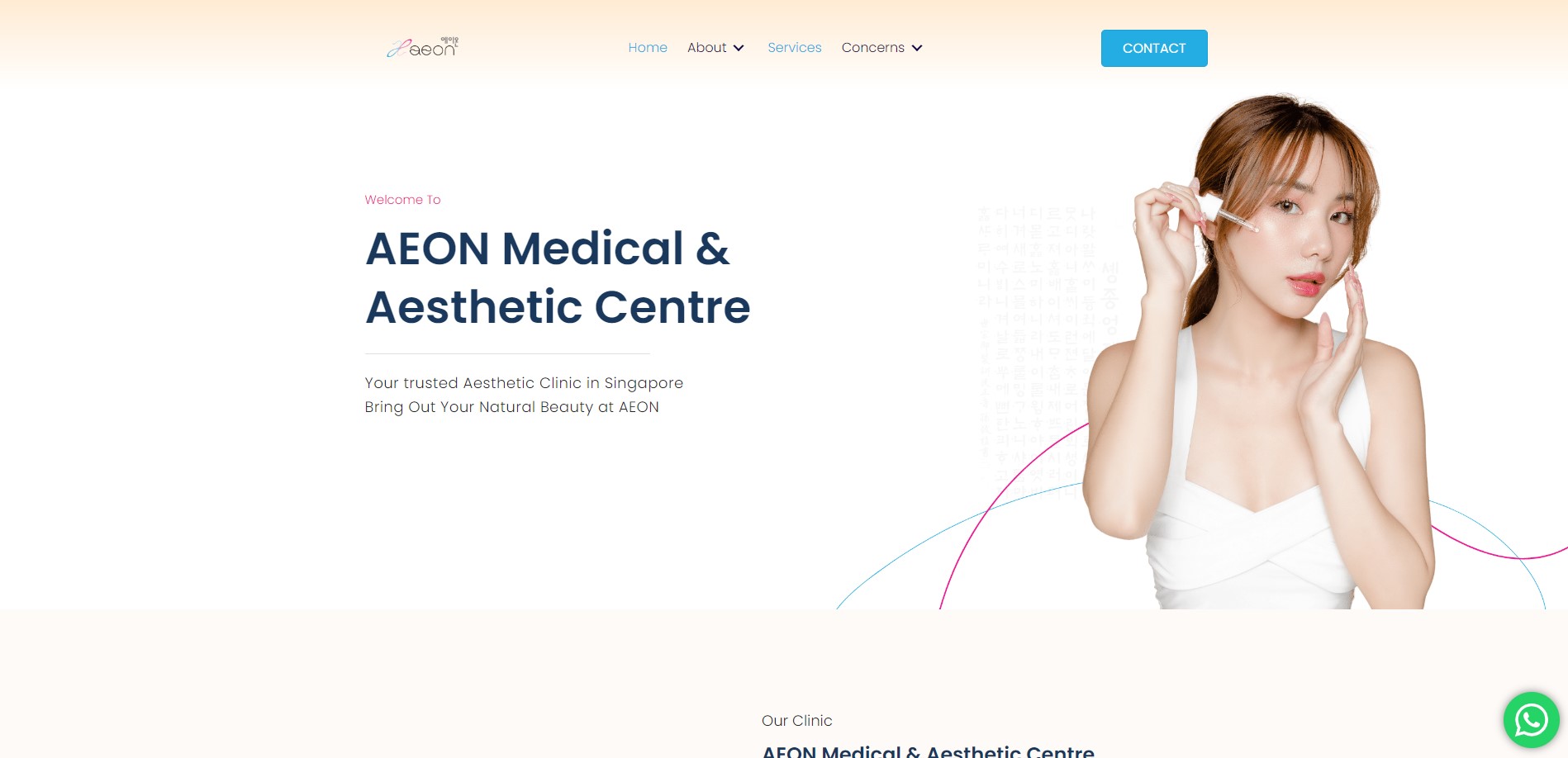
Acne Treatments in Singapore + 2024 Price Guide
Do pesky pimples and stubborn breakouts make you feel low? You’re not alone! In our humid climate, acne is a common concern, affecting people of all ages. But before you grab that quick fix from the pharmacy or try another ineffective home remedy, let’s explore some of the most effective acne treatments in Singapore.
If you are ready to take control of your skin and have the complexion you’ve always wanted, it’s time to look at professional-grade solutions. Let’s hear what the experts say about getting clear skin, from in-office treatments at the dermatologist to medical-grade acne products.
When Should I See a Doctor for Acne?
Stubborn breakouts aren’t just frustrating, they can point to deeper skin concerns. That is why seeing a doctor for acne goes beyond aesthetics. Getting professional guidance ensures that you get the right diagnosis and treatment plan. Rather than leaving you guessing at home, your doctor can identify underlying triggers, prescribe effective medication, and prevent scarring or permanent damage.
Seeking a skincare specialist about your acne concerns is never too early or too late. If you want to invest in your future skin health, consult a doctor for lasting results and peace of mind.
Which Doctor To See for Acne Treatment?
To find suitable skincare specialists and dermatologists in Singapore, it is important to choose a skin specialist for acne treatment who has abundant experience and expertise in dealing with skin problems.
AEON Medical & Aesthetic Centre

Led by the qualified Dr Jeslin, AEON Medical & Aesthetic Centre specialises in customised skincare solutions.
Bringing various aesthetic treatments to Singapore, Dr Jeslin offers effective solutions for a wide range of skin conditions. Think different laser technologies, skincare products, and proven techniques that deliver effective results.
What we particularly love about AEON is that they take a holistic approach and focus on a long-term vision rather than quick fixes. Beyond simply addressing your current breakouts, Dr Jeslin considers your lifestyle, budget, and long-term skin goals to create a personalised treatment plan that works for you now and in the future.
Frequently Asked Questions About Acne Treatments
Wondering which treatment is right for you, what to expect, or how much it costs? We’ve compiled the most frequently asked questions about acne treatments to get you started on your path to clearer skin.
What causes acne?
- Clogged pores: Excess oil production combined with dead skin cells can clog pores, creating an environment for bacteria to grow. This bacteria, Propionibacterium acnes, causes inflammation and forms pimples.
- Hormonal fluctuations: Androgens, hormones that naturally increase during puberty and adulthood, can stimulate sebum production, triggering breakouts. This is why acne often flares up around menstrual periods or during pregnancy because of the fluctuation in these hormones.
- Genetics: Family history plays a significant role in determining your susceptibility to acne. If your parents had acne, you’re more likely to experience it as well.
- Certain medications: Some medications, such as birth control pills or corticosteroids, can cause or worsen acne as a side effect.
- Diet: While research is ongoing, some studies suggest a link between high-glycemic index foods and dairy products and the severity of acne.
- Stress: Chronic stress can elevate cortisol levels, a hormone that can increase sebum production and worsen acne.
Keep in mind that it’s not uncommon for several of these factors to work together to cause acne. Consulting a dermatologist can help you identify your specific triggers and develop a personalised acne treatment plan.
What are the different types of acne?
While we all get occasional pimples, not everyone experiences acne. Even amongst the people who have acne, there is not one universal cause or type. Here’s a breakdown of the main types of acne:
- Non-inflammatory Acne: This type includes mild breakouts that result from clogged pores but without deeper inflammation, such as the following:
- Comedones: These are the basic blocked pores like blackheads (open comedones) and whiteheads (closed comedones). They are caused by excess oil and dead skin cells clogging pores.
- Papules: Small, pink, and tender bumps caused by mild inflammation around clogged pores.
- Inflammatory Acne: Characterised by red, swollen pimples caused by clogged pores and inflammation, this type of acne includes the following types:
- Pustules: Papules with a white or yellow pus-filled.
- Nodules: Larger, painful, solid bumps deeper in the skin, often leaving scars.
- Cysts: Large, pus-filled lesions deep within the skin, very painful and prone to scarring.
- Other Types of Acne include the following:
- Hormonal Acne: Often affects adults and is triggered by hormonal fluctuations around periods or menopause.
- Acne Mechanica: caused by friction and pressure on the skin, often appearing as bumps on the face, back, or shoulders.
- Cosmetica Acne: Certain skin care products can clog pores and worsen acne.
How long does it take for acne treatments to show results?
While seeing results from acne treatments can be frustratingly slow, you can achieve clearer skin with the right approach. Over-the-counter options might show initial improvement within weeks for mild cases; however, the journey to clearer skin often takes longer, especially for moderate to severe acne.
Prescription medications for acne and other doctor-recommended treatments can take several months to reach their full effect. However, working with a dermatologist can help speed up this process. A professional can assess your unique skin type, acne severity, and individual factors to create a personalised treatment plan, which will offer more effective results.
Should I see a doctor for acne?
Absolutely. Visiting an aesthetic clinic for acne is often recommended, especially if over-the-counter treatments haven’t helped or your acne is causing self-esteem problems. A dermatologist can accurately diagnose your acne type and severity, and recommend the most effective treatment plan based on your individual needs. They can also monitor your progress to ensure optimal results and treat any acne scars. This personalised approach can significantly improve your chances of achieving clearer skin faster and with fewer side effects.
2024 Professional Acne Treatments Price Guide
When you see a doctor for acne treatment, they will create a customised treatment plan that may include a range of different options, depending on your skin type. Let’s look at what to expect for general prices:
- Chemical peel: $150 to $500
- Non-ablative laser therapy: $350 to $500
- Ablative laser therapy: $500 to $2000
- Light therapy: $100 to $300
- Injectables to prevent acne: $100 to $200
When it comes to acne scar removal in Singapore, here is a general idea of what you expect in terms of pricing:
- Microneedling: $300 to $800 per session
- Laser treatments: $350 to $2000 per session
- Dermal fillers: $500 to $1500 per session
Note: Remember that cheaper is not better in the world of dermatology. It is crucial to work with a trained and qualified professional, and follow their recommendations.
Conclusion
Your journey to radiant, healthy skin starts with professional care. At Aeon Medical & Aesthetic Centre, we offer advanced solutions for concerns like acne treatment, wrinkles treatment. We also provide treatments for acne scars and dehydrated skin treatment. With the guidance of our skilled aesthetic doctor, you’ll receive customized care to restore your skin’s natural beauty. Visit our aesthetic clinic in Singapore today to take the first step toward glowing, youthful skin.
